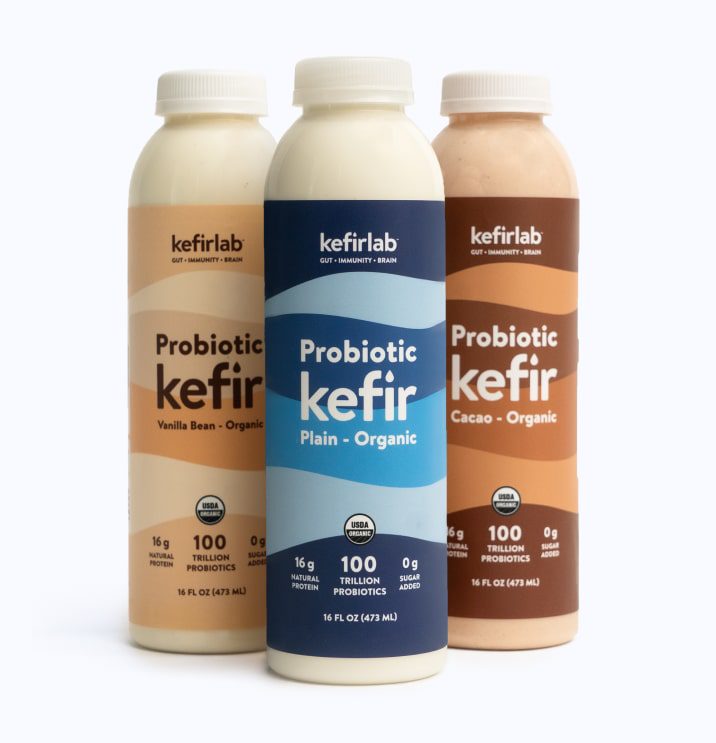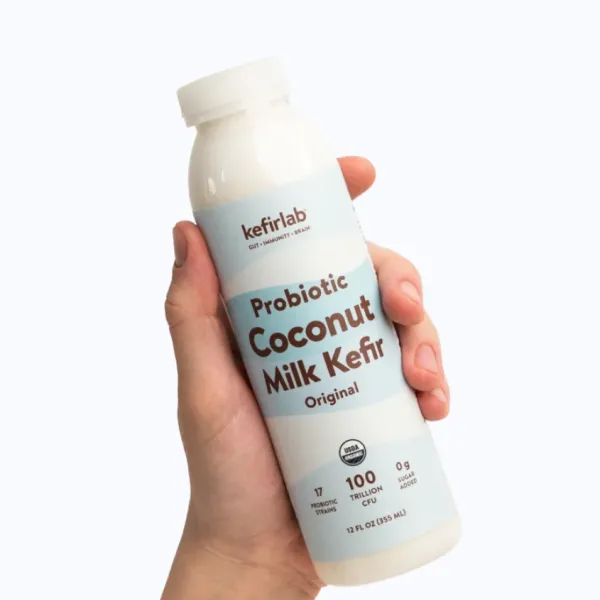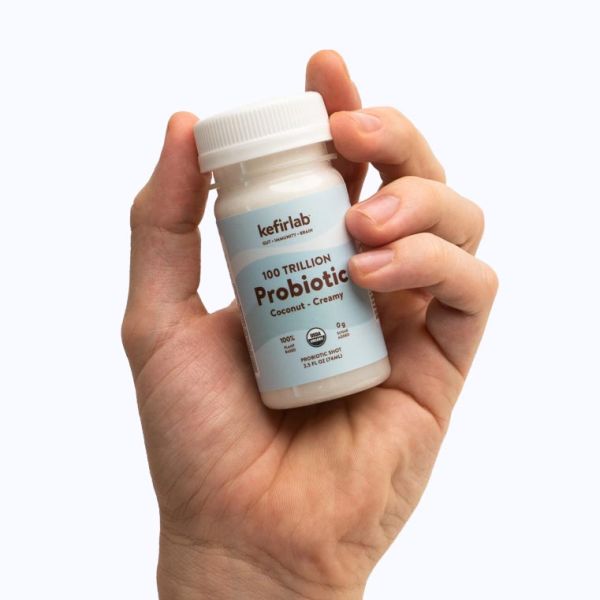What are Adaptogens and Why You Should Incorporate Them into Your Wellness Routine

Introduction to adaptogens
In today’s fast-paced world, stress and anxiety have become common issues faced by millions of people worldwide.
As a result, many have turned to natural remedies to help alleviate these symptoms and improve overall health.
One such remedy that has recently gained popularity is adaptogens.
But what exactly are adaptogens, and how can they be incorporated into your wellness routine?
What are adaptogens?
Adaptogens are a unique class of plants used for centuries in traditional medicine. They help the body adapt to various types of stress, both physical and mental.
They work by supporting the adrenal glands, which regulate the body’s stress response.
By doing so, adaptogens help to restore balance and promote overall wellness.
In this comprehensive guide, we will explore the world of adaptogens, including their history, benefits, and how to incorporate them into your daily life.
The history of adaptogens
The use of adaptogens dates back thousands of years to ancient healing systems such as Ayurveda and traditional Chinese medicine.
These ancient practices recognized the power of certain plants to help the body adapt to stress and maintain balance.
For example:
- Ashwagandha has been used in Ayurvedic medicine for over 3,000 years to promote vitality.
- Ginseng has been a staple in traditional Chinese medicine for its energy-boosting and immune-supporting properties.
- In the 1940s, Russian scientists began studying these plants in hopes of discovering a natural solution to help their soldiers and athletes perform better under the extreme stress of war and competition.
This research led to coining the term “adaptogen” and identifying several plants with adaptogenic properties, including Rhodiola, Eleutherococcus (Siberian ginseng), and Schisandra.
Today, adaptogens are widely recognized for their ability to help the body adapt to various types of stress.
Their popularity has grown as more people seek natural solutions to support their health and well-being.
Top adaptogenic herbs and their benefits
There are numerous adaptogenic herbs, each with its unique benefits.
Some of the most well-known and widely used adaptogens include:
- Ashwagandha: This ancient Indian herb has been used for centuries in Ayurvedic medicine to promote vitality, reduce inflammation, and enhance mental clarity. Ashwagandha helps the body adapt to stress and reduce anxiety and depression symptoms.
- Rhodiola: A Scandinavian herb traditionally used to increase energy, endurance, and mental focus. Rhodiola is particularly beneficial for those dealing with chronic fatigue or burnout, as it helps the body to adapt to physical and mental stress.
- Ginseng: There are several types of ginseng, including Asian (Panax) ginseng and American ginseng. Both have been used for centuries in traditional Chinese medicine to improve overall health, boost energy levels, and enhance cognitive function.
- Holy Basil (Tulsi): This aromatic herb, native to India, has been used for centuries to promote a healthy stress response, support the immune system, and maintain emotional well-being.
- Cordyceps: A unique mushroom used in traditional Chinese medicine to improve energy levels, increase endurance, and support the immune system.
These are just a few examples of the many adaptogenic herbs available.
Each offers unique benefits, and many can be combined for a synergistic effect.
Types of adaptogens and their benefits
There are several types of adaptogens, each with its unique benefits. These can be grouped into three main categories:
- Stimulating adaptogens: Help to increase energy levels, enhance cognitive function, and support physical performance. Examples include Rhodiola, ginseng, and maca.
- Calming adaptogens: Promote relaxation, support stress relief, and help maintain emotional well-being. Examples include ashwagandha, holy basil, and reishi.
- Balancing adaptogens: Support overall health and well-being by promoting a healthy response to stress and supporting immune function. Examples include astragalus, schisandra, and cordyceps.
By understanding the different types of adaptogens and their benefits, you can choose the ones that best align with your health goals and needs.
How do adaptogens work?
Adaptogens work by supporting the body’s natural ability to adapt to stress.
They do this by interacting with the hypothalamic-pituitary-adrenal (HPA) axis, which regulates the body’s response to stress.
When the HPA axis becomes overstimulated, it can lead to imbalances in the body, such as increased cortisol levels, inflammation, and a weakened immune system.
Adaptogens help to restore balance by modulating the HPA axis and supporting the adrenal glands.
Some adaptogens also have antioxidant and anti-inflammatory properties, which can help protect the body from the damaging effects of stress.
Additionally, many adaptogens have been shown to improve cognitive function, increase energy levels, and support overall health and well-being.
Incorporating adaptogens into your wellness routine
Incorporating adaptogens into your wellness routine can be simple and enjoyable.
Adaptogens can be found in various forms, including:
- Teas
- Tinctures
- Capsules
- Powders
- Functional foods
Here are a few tips to help you get started:
- Choose the right adaptogen for your needs: Select adaptogens that align with your specific health goals and needs. For example, if you’re dealing with chronic stress or anxiety, ashwagandha or holy basil might be a good choice. If you want to improve energy levels and physical performance, try Rhodiola or cordyceps.
- Start with a low dose: It’s best to start with a low dose and gradually increase it over time. This allows your body to adjust to the adaptogen and minimizes the risk of side effects.
- Be consistent: Adaptogens work best when used consistently over time. To experience their full benefits, incorporate them into your daily routine and give them time to take effect.
- Consult with a professional: Before starting any new supplement, it’s always a good idea to consult with a healthcare professional, especially if you have any pre-existing conditions or are taking medications.
How to choose the right adaptogen for your needs
With so many adaptogens available, it can be challenging to determine which one is right for you.
When choosing an adaptogen, consider the following factors:
- Your specific health goals: Are you looking for stress relief, increased energy, enhanced cognitive function, or immune support? Different adaptogens offer unique benefits, so it’s essential to choose one that aligns with your specific goals.
- Your constitution: Some adaptogens may be more suitable for certain individuals based on their unique constitution, known as their dosha in Ayurvedic medicine. For example, those with a predominantly Vata (air) constitution may benefit more from grounding adaptogens like ashwagandha. In contrast, those with a predominantly Kapha (earth) constitution may benefit more from stimulating adaptogens like Rhodiola.
- Quality and sourcing: Look for high-quality adaptogens from reputable sources, as the quality and potency can vary significantly between products. Choose organic and wildcrafted options whenever possible to ensure purity and sustainability.
- Form: Adaptogens come in various forms, including teas, tinctures, capsules, and powders. Choose a form that fits your preferences and lifestyle.
Adaptogens for stress relief and mental health
Adaptogens are particularly well-known for their ability to support stress relief and mental health.
Some adaptogens that are particularly effective for this purpose include:
- Ashwagandha: Reduce stress and anxiety symptoms, improve sleep quality, and support healthy cortisol levels.
- Holy Basil (Tulsi): Promote a healthy response to stress and help maintain emotional well-being.
- Rhodiola: Reduce the symptoms of stress-related burnout and improve mental focus and cognitive function.
- Schisandra: Promote mental clarity, reduce stress, and support overall well-being.
By incorporating these adaptogens into your wellness routine, you can support your mental health and better cope with the challenges of daily life.
Adaptogens for energy and physical performance
Adaptogens can also help improve energy levels and physical performance, making them an excellent addition to any fitness routine.
Some adaptogens that have been shown to support energy and physical performance include:
- Rhodiola: Increase energy, endurance, and physical performance, making it an excellent choice for athletes and those looking to improve their fitness levels.
- Cordyceps: Improve energy levels, increase endurance, and support physical performance.
- Ginseng: Both Asian (Panax) ginseng and American ginseng have been used to boost energy levels and enhance cognitive function.
- Maca: Increase energy and endurance, making it a popular choice for athletes and active individuals.
By incorporating these adaptogens into your wellness routine, you can support your energy levels and improve your physical performance.
Adaptogens for immune support and overall health
In addition to their stress-adapting properties, many adaptogens also offer immune-supporting benefits, making them an excellent choice for those looking to improve their overall health.
Some adaptogens that have been shown to support immune function include:
- Astragalus: It’s been used in traditional Chinese medicine to support immune function, promote overall health, and increase vitality.
- Reishi: It’s been shown to support immune function, promote relaxation, and improve overall well-being.
- Siberian Ginseng (Eleutherococcus): It’s been used to support immune function, increase energy levels, and promote overall health.
By incorporating these adaptogens into your wellness routine, you can support your immune system and promote overall health and well-being.
Potential side effects and precautions
While adaptogens are generally considered safe, you should know about potential side effects and precautions.
Some potential side effects of adaptogens may include:
- Digestive upset: Some adaptogens, such as ashwagandha or Rhodiola, may cause digestive upset in some individuals. To minimize this risk, start with a low dose and gradually increase it over time.
- Allergic reactions: As with any supplement, some individuals may be allergic to certain adaptogens. If you experience any allergic symptoms, such as itching, rash, or difficulty breathing, discontinue use immediately and consult your healthcare professional.
- Interactions with medications: Some adaptogens may interact with medications, such as blood thinners or antidepressants. Always consult with a healthcare professional before starting any new supplement if you are taking medications.
- Pregnancy and breastfeeding: While many adaptogens are considered safe during pregnancy and breastfeeding, it’s always best to consult with a healthcare professional before using any supplements during these times.
Expert recommendations on using adaptogens
When it comes to using adaptogens, many experts recommend starting with a low dose and gradually increasing it over time.
This allows your body to adjust to the adaptogen and minimizes the risk of side effects.
Additionally, it’s essential to be consistent with your adaptogen use, as they work best when used regularly over time.
Consult with a healthcare professional or an experienced herbalist before starting any new supplement, especially if you have any pre-existing conditions or are taking medications.
They can help you determine the best adaptogens for your specific needs and recommend the appropriate dosage and form.
Conclusion and the future of adaptogens in wellness
As we continue to learn more about the power of adaptogens, we will likely see an even wider range of these plants being incorporated into wellness routines.
Additionally, as more people turn to natural remedies for their health and well-being, adaptogens may become a more mainstream and widely accepted approach to supporting overall health.
By incorporating adaptogens into your wellness routine, you can experience their many benefits and support your physical, mental, and emotional health.
As always, it’s essential to consult with a healthcare professional before starting any new supplement or making changes to your wellness routine.
Join Kefir Club
Like our probiotics, our emails are clean and good for you. Spam Free. Unsubscribe anytime.














